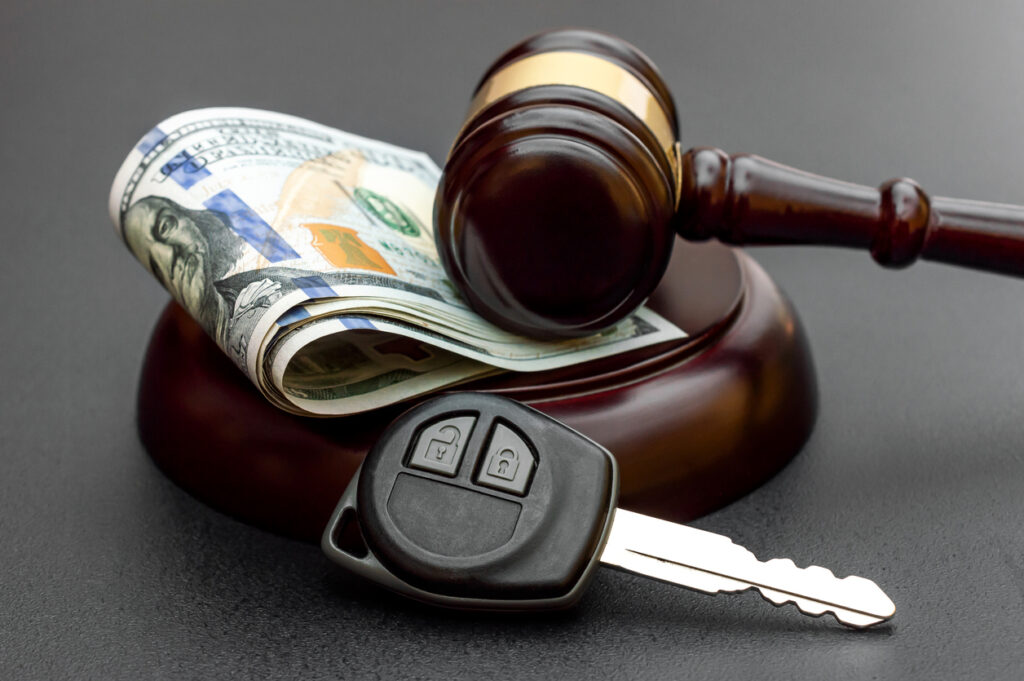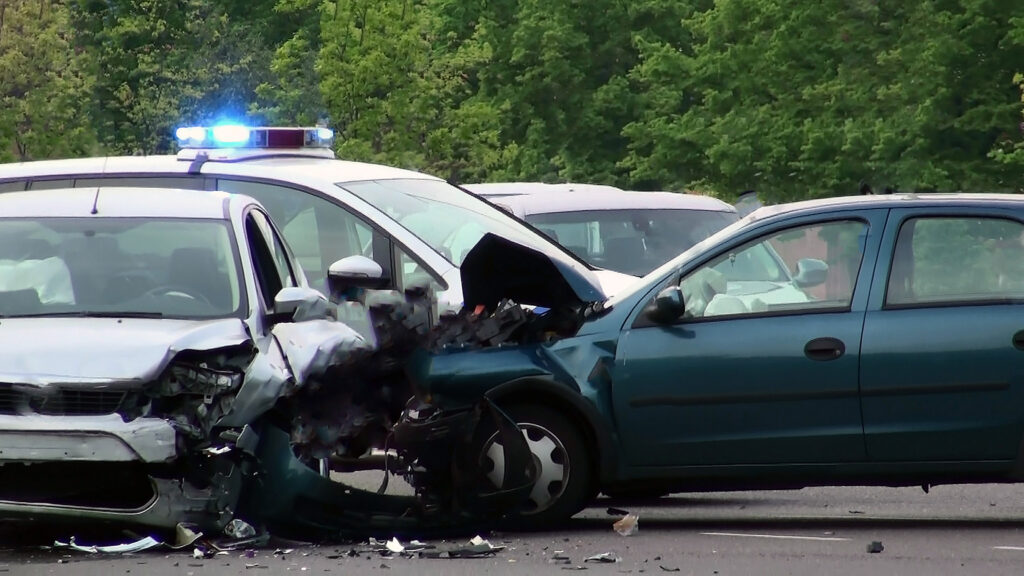When suing for a car accident in Georgia, gathering evidence can mean the difference between a denied claim and full compensation. Georgia’s civil justice system requires plaintiffs to prove liability, causation, and damages with credible documentation and testimony. Without adequate evidence, even the most legitimate car accident claims can unravel in court or during negotiations. From the moment a crash occurs, every detail matters—from the condition of the vehicles to the accuracy of the police report and the consistency of medical treatment records.
Understanding how to build a legally sound case involves more than just collecting receipts and witness names. It involves aligning each piece of evidence with Georgia’s modified comparative fault rules and presenting it within the strict standards of civil procedure. If you’re considering suing for a car accident in Georgia, this guide will help you understand how to gather, preserve, and leverage evidence to establish liability and maximize potential recovery.
Understanding the Importance of Evidence When Suing for a Car Accident in Georgia
The civil burden of proof in Georgia car accident cases lies squarely on the plaintiff. To win damages, the party suing for a car accident in Georgia must establish that the defendant owed a duty of care, breached that duty, and caused quantifiable harm as a result. Each element must be supported by admissible and persuasive evidence. Insurance companies and opposing counsel will aggressively scrutinize every detail, especially in cases involving contested liability or vague medical claims.
If you’re contemplating suing for a car accident in Georgia, gathering evidence begins at the accident scene and continues through treatment, repair, and legal consultation. Every photo, document, or testimony you collect can directly influence your ability to recover.
Accident Scene Documentation: The Foundation of a Strong Claim
One of the most overlooked steps when suing for a car accident in Georgia is immediate documentation at the scene. Photographic and video evidence of vehicle damage, road conditions, weather, skid marks, traffic signs, and physical injuries provide an unbiased record of the event. These visuals serve as compelling exhibits in court and during settlement talks.
Additionally, securing the police report is essential. Georgia law under O.C.G.A. § 40-6-273 mandates that law enforcement be notified in any crash resulting in injury, death, or significant property damage. This official report includes objective details such as time, location, officer observations, and preliminary fault assessments, which can bolster your credibility when suing for a car accident in Georgia.

Medical Records as Proof of Injury and Causation
Another critical component when suing for a car accident in Georgia is establishing a causal link between the collision and your injuries. Medical documentation must be thorough, timely, and consistent. Gaps in treatment or vague diagnoses can open the door for insurers to argue that your injuries were pre-existing or exaggerated.
Georgia courts often give significant weight to diagnostic imaging, specialist notes, and follow-up treatment plans. To meet the legal standard of causation, it must be medically probable—not just possible—that the injuries stemmed from the crash. When suing for a car accident in Georgia, securing consistent medical documentation from the moment of injury until recovery is a strategic necessity.
Eyewitness Testimony and Its Role in Establishing Liability
Eyewitnesses can significantly strengthen your claim if you’re suing for a car accident in Georgia. Independent third-party accounts carry weight because they are perceived as neutral. Testimony from bystanders, passengers, or nearby drivers who saw the collision unfold can confirm details about who had the green light, whether speeding was involved, or if distracted driving played a role.
Eyewitness statements should be collected as soon as possible while memories are fresh. Georgia courts allow both sworn affidavits and in-person testimony, making early witness cooperation vital. Failing to gather such accounts can hinder your ability to prove fault when suing for a car accident in Georgia with conflicting versions of the event.
Using Surveillance and Dashcam Footage to Support Your Claim
In today’s urban and suburban environments, video footage from security cameras, traffic lights, and dashcams can be pivotal when suing for a car accident in Georgia. This form of evidence provides objective, real-time recordings that remove ambiguity from key moments before, during, and after the crash.
Dashcam footage, in particular, is becoming increasingly persuasive in Georgia courts. However, this material must be obtained and preserved quickly. Surveillance data is often deleted or overwritten within days. Those suing for a car accident in Georgia should send formal spoliation letters early in the legal process to preserve digital evidence that could otherwise be lost.

Proving Damages Beyond the Obvious
While vehicle repair estimates and medical bills are commonly included in personal injury claims, plaintiffs suing for a car accident in Georgia often miss the opportunity to recover for future losses. Lost earning capacity, ongoing physical therapy, chronic pain, and mental health impacts can and should be included if supported by credible documentation and expert testimony.
Economic damages must be supported with wage documentation, tax returns, or vocational evaluations. Non-economic damages like pain and suffering require evidence of emotional distress or reduced quality of life. When suing for a car accident in Georgia, failure to document these areas comprehensively can limit the scope of financial recovery.
The Role of Georgia’s Comparative Fault in Evidence Strategy
One of the most important reasons to gather airtight evidence when suing for a car accident in Georgia is the state’s modified comparative negligence rule under O.C.G.A. § 51-12-33. If you are found to be 50% or more at fault, you cannot recover damages. Even if you’re less than 50% at fault, your compensation is reduced by your degree of responsibility.
This makes evidence gathering not only about proving the other party’s liability but also about protecting your own standing. Photographs showing lane positioning, witness statements verifying speed, and timestamped traffic data can help rebut any claims that you contributed significantly to the crash. When suing for a car accident in Georgia, the best defense against comparative fault allegations is comprehensive, credible, and well-organized evidence.
Expert Witnesses to Strengthen Technical Aspects of the Claim
Expert witnesses often play a critical role for those suing for a car accident in Georgia, especially in cases involving complex injuries, disputed mechanics, or unclear fault. Accident reconstruction specialists, orthopedic surgeons, and economists can translate raw data into courtroom-friendly testimony that supports liability, causation, and damages.
For example, in a multi-vehicle crash where fault is contested, an accident reconstructionist can analyze skid marks, impact points, and vehicle telemetry to build a compelling narrative. Those suing for a car accident in Georgia should consider early consultation with relevant experts, as this strengthens both the negotiation and litigation phases.

Digital Evidence and Communication Records
In an era of smartphones, text messages, call logs, and social media posts can provide supplementary evidence when suing for a car accident in Georgia. If a driver was texting moments before a collision, those records may support allegations of negligence. Similarly, posts describing injuries or the crash itself can corroborate or contradict the plaintiff’s claims.
However, digital records can be a double-edged sword. Insurers and opposing counsel will also investigate your own communications. Those suing for a car accident in Georgia must be careful about what they share publicly and preserve only the evidence that supports their claims without introducing contradictions.
Preserving Evidence Through Legal Protocols
Gathering evidence is only half the battle; preservation is just as critical. Individuals suing for a car accident in Georgia must avoid evidence spoliation—a legal term that refers to the destruction or alteration of potentially relevant material. Courts can impose sanctions, dismiss claims, or make negative inferences if spoliation is suspected.
Preservation letters sent to the at-fault party or relevant third parties (like employers, security camera operators, or tow yards) can help retain video footage, employment logs, or maintenance records. When suing for a car accident in Georgia, such proactive steps are essential to ensuring key information is available when it counts.
Using Georgia Case Law and Civil Standards to Support Claims
Plaintiffs suing for a car accident in Georgia should also consider how established case law shapes evidentiary expectations. Georgia courts follow clear judicial precedents regarding admissibility, relevance, and the sufficiency of evidence. For example, courts routinely exclude overly speculative testimony or undocumented medical expenses.
Understanding these procedural expectations allows claimants to gather only what will stand up under scrutiny. Utilizing resources such as the Georgia General Assembly’s legislative portal ensures alignment with statutory requirements and judicial standards.

Understanding Financial Recovery Limits and Claims Valuation
Those suing for a car accident in Georgia often underestimate or overestimate how much they can claim. Georgia law does not impose a cap on compensatory damages in auto accident cases. However, the final award will depend heavily on the quality of the evidence presented.
According to this detailed breakdown of how much someone can sue for a car accident in Georgia, compensation varies based on liability, medical proof, property damage, and long-term losses. Gathering evidence with these valuation benchmarks in mind ensures that no valid category of damages is left out or undervalued.
Conclusion: Preparing for Success When Suing for a Car Accident in Georgia
Successfully suing for a car accident in Georgia requires more than pointing blame. It demands a deliberate, methodical approach to gathering and preserving evidence. From the moment of the crash to the final hearing or settlement, every photo, record, and witness can shape the trajectory of your case. Given Georgia’s comparative fault rules and high burden of proof, even one missing document can jeopardize your financial recovery.
Those preparing for suing for a car accident in Georgia must treat every stage as legally significant. With strong documentation, reliable testimony, and a clear understanding of judicial expectations, plaintiffs can present a compelling, fact-driven claim that meets the state’s evidentiary standards and maximizes potential compensation.
